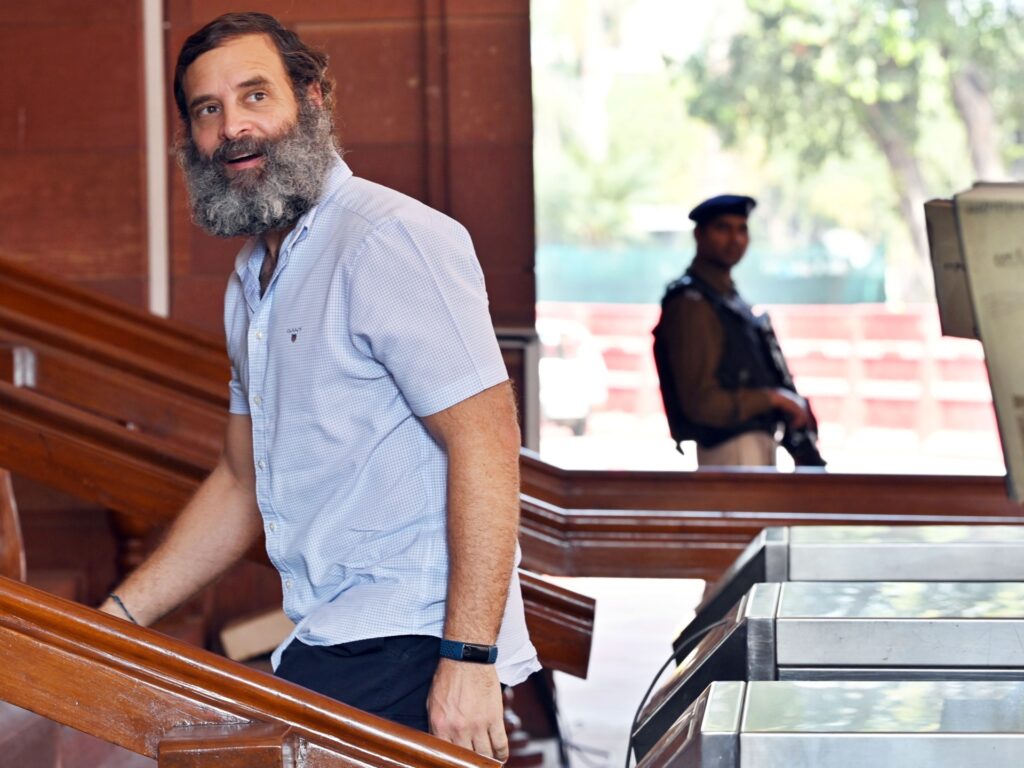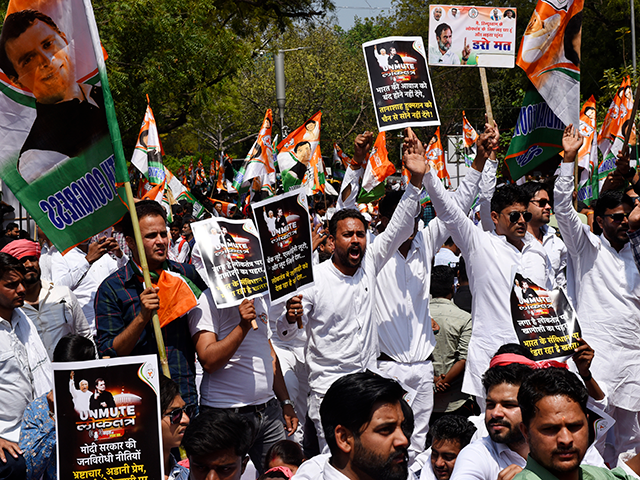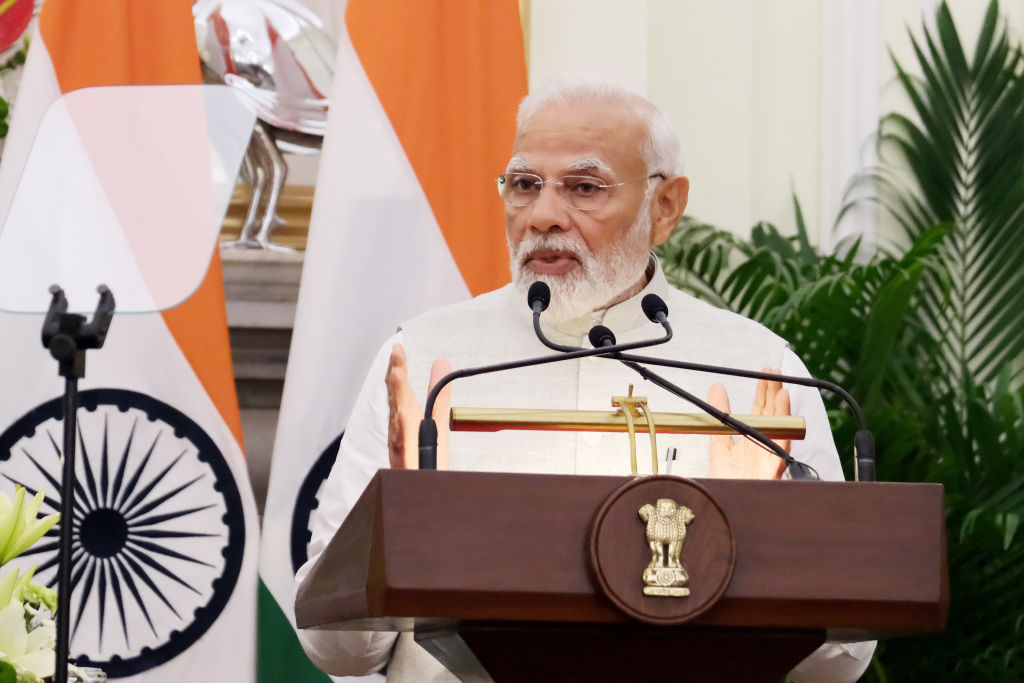India’s parliament, the Lok Sabha, on Monday was roiled by angry protests from opposition members against the expulsion of India Congress Party (INC) leader Rahul Gandhi.
Speaker Om Birla was forced to adjourn the session twice after black-clad opposition MPs threw pieces of paper at him, drowned out the proceedings with loud shouts, and chanted protest slogans against Prime Minister Narendra Modi and his BJP party.

Congress MP Rahul Gandhi arrives at the parliament house complex during Budget Session, on February 9, 2023, in New Delhi, India. (Sanjeev Verma/Hindustan Times via Getty Images)
Gandhi, the most prominent member of INC but not presently its chief officer, was convicted of defaming Modi last week and sentenced to two years in prison. Parliament then followed a provision of the Indian legal code and expelled Gandhi from his seat last Friday because his conviction made him ineligible to serve even while he is out on bail and filing appeals.
The defamatory remarks were made in a 2019 speech in which Gandhi lumped the prime minister in with two famous Indian criminal defendants who also happened to be named “Modi.” A member of Modi’s BJP party pressed charges, arguing that Gandhi’s comments constituted not only slander against Prime Minister Modi personally, but also an insult to the ethnic group from which he hails.
Gandhi and his INC party maintain the prosecution was a political stunt designed by BJP to boot an outspoken critic out of the legislature and possibly make him ineligible to run against Modi for the prime minister’s seat next year.
Lawmakers from INC and its allies, dressed in black shirts and scarves, made this argument very loudly on Monday, causing Parliament to adjourn twice in the span of ten minutes. Opposition leaders also staged protests against the Gandhi prosecution in New Delhi and other cities across India.
BJP lawmakers pushed back by accusing INC of playing “cheap politics” and insisted Gandhi “has no right to consider himself above the law.” BJP members held a counter-protest on parliamentary grounds after the Lok Sabha was adjourned.
Gandhi himself portrayed the case against him as an attack on democracy. On Saturday, he accused BJP of trying to thwart a deeper investigation of Gautam Adani, India’s richest man and a close ally of Modi. Adani has been accused of fraud by a U.S. company called Hindenburg Research.
“I have been disqualified because the prime minister is scared of my next speech, he is scared of the next speech that is going to come on Adani. They don’t want that speech to be in parliament, that’s the issue,” Gandhi charged on Saturday.
“They are used to everybody being scared of them. I am not scared of them,” he said.
“My family has nurtured the democracy of this country with their blood. Those who think they can threaten us by insulting us or use central agencies against us, are wrong. We are not going to be threatened,” Gandhi’s sister Priyanka Gandhi Vadra said at the same rally on Saturday.
The U.S. State Department said on Monday that America values both the rule of law and democracy and will monitor the Gandhi situation.
“Respect for the rule of law and judicial independence is a cornerstone of any democracy, and we’re watching Mr. Gandhi’s case in Indian courts, and we engage with the government of India on our shared commitment to democratic values – including, of course, freedom of expression,” State Department spokesman Vedant Patel said.
Patel would not confirm if the U.S. government was in direct contact with Gandhi, but said “it is normal and standard for us to engage with members of opposition parties in any country where we have bilateral relationships.”


COMMENTS
Please let us know if you're having issues with commenting.